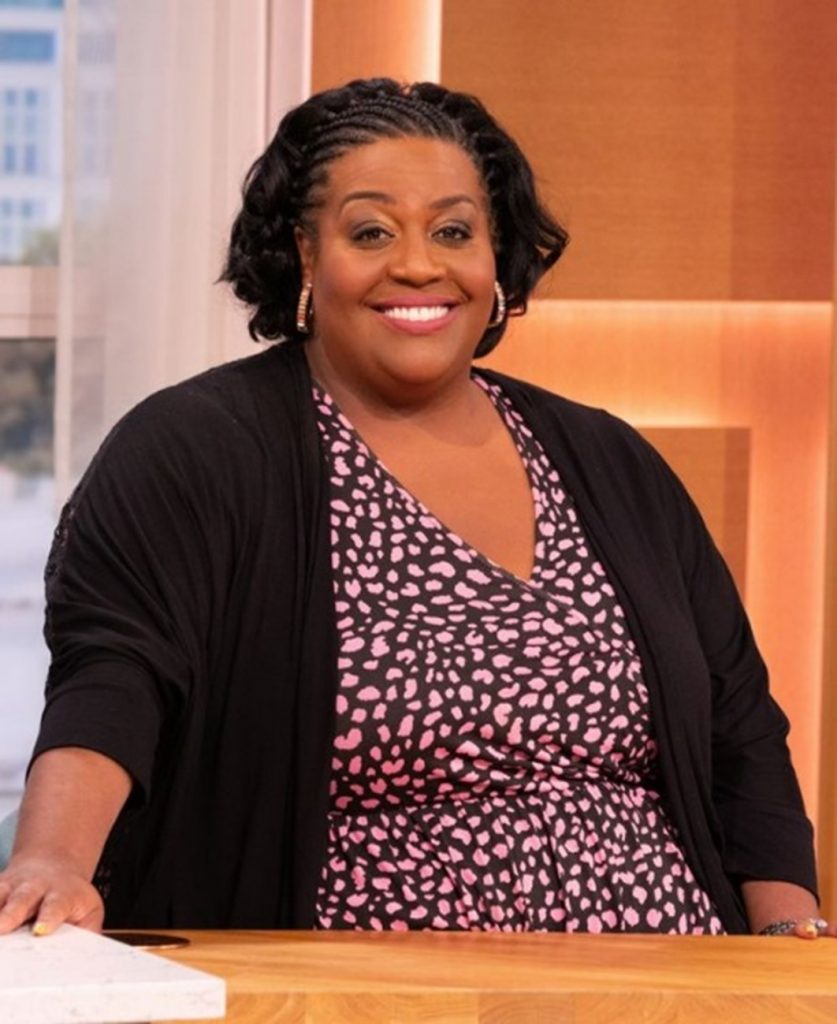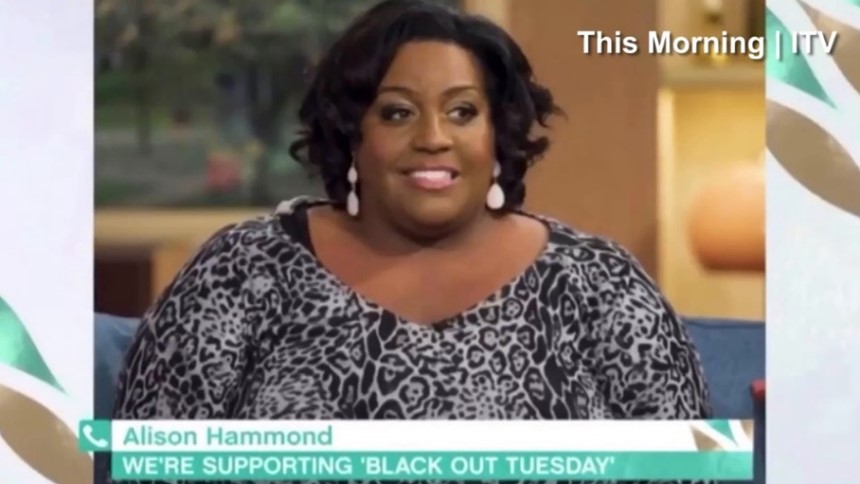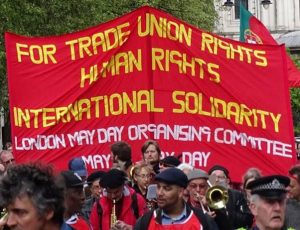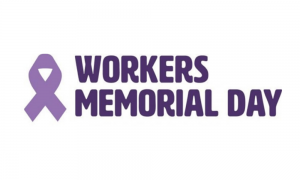From child actress to ITV presenter
One of Britain’s most loved TV personalities, Alison Hammond, has lit up our screens on daytime TV for over 18 years, becoming a firm fan favourite.
Alison performed as a child actress and travelled across the globe as a holiday entertainer, rising to fame after appearing on the third series of ‘Big Brother’ in 2002.
With her bubbly personality and wonderful way of putting people at ease, Alison’s great opportunity finally arrived in 2003 when a producer gave Alison the opportunity of a lifetime on ITV’sdaytime show, ‘This Morning’.
From interviewing celebrities to being a celebrity
On ITV, Alison interviewed many famous faces including Ryan Gosling, Mariah Carey and Beyonce! Since capturing the hearts of the nation on ‘This Morning’, Alison has appeared in ‘I’m a Celebrity Get Me Out of Here’, ‘Celebrity MasterChef’ and ‘Strictly Come Dancing’. For many pantomime lovers, Alison will be a familiar face after being cast in ‘Snow White & The Seven Dwarfs’, ‘Aladdin’, and ‘Jack & The Beanstalk’. One of Alison’s most important pieces of work happened last year when she presented ‘Alison Hammond: Back to School’ on ITV, exploring untold stories of Black Britons.
Growing up with in-your-face racism and financial constraints
Alison talks openly about her childhood in North Birmingham where she grew up in an area that had a strong National Front presence. She reflects on the repugnant racism that she and her family had to endure as she says, “Someone said to me: ‘I didn’t realise elephants were black.’ It really stuck with me. That was the first time that I felt: ‘That’s not fair what you just said.’ This is my colour, deal with it!” Apart from having to deal with explicit and vile racism, money was tight and despite starring in shows such as ‘Grange Hill’ and ‘Palace Hill’, financial restraints ultimately left Alison unable to take up a place at drama school.
Black Lives Matter
Alison has talked emotionally about the impact that the powerful Black Lives Matter movement had on herself and her family: “Firstly, I am a mother of a 15-year-old black boy. When I saw that image of George Floyd, I saw my brothers, I saw my father and I saw my son, I saw everybody’s son and I was disgusted to my core. It hurt me to the pit of my stomach to think that this is 2020 and we are seeing that. Let’s be honest, this has been going on forever.”
Alison Hammond on solidarity with BLM
| “I believe this movement, Black Lives Matter, is so very important and it’s so wonderful when I see my white, my Asian brothers and sisters standing by Black Lives Matter it means they understand. They can’t understand fully but they understand what we are going through as Black people.” |
Aratrust fully supports Alison’s profound message that: “It’s not about ‘all lives matter’, obviously we know that, it’s all about the fact that if Black lives mattered then we wouldn’t be in this situation. When Black lives matter, then all lives will matter.”
Educating ourselves about Black History
Following her emotive BLM speech, Alison revealed a call from an ITV producer: “We spoke about the fact that I’d told everybody that they needed to educate themselves, and I was sitting there thinking do you know something, I might have to educate myself as well. There’s a lot of black history – my history – that I don’t know about.”
This was the inspiration behind her latest TV project, ‘Alison Hammond: Back to School’, aired in Black History Month last year, which saw her learn about important and often excluded figures in British history such as Mary Seacole and Walter Tull.
Alison Hammond on TV and reality
| “I’m an exception to the rule. I don’t think it’s normal that you see a black person in my industry. There needs to be more diversity. Then TV will represent society as it is … what we see when we’re out and about. We are living in Britain. It needs to be spoken about. You can’t turn your back on it.” |
Aratrust strongly agrees with Alison Hammond about the challenges and the work that needs to continue to challenge those barriers that prevent more Black and minority-ethnic talent from appearing on our TV and Film screens.
Under- representation in the media
Aratrust welcomes the progress in achieving better representation across Film and TV, as highlighted in the 2019/2020 Ofcom Report, with Broadcasters (TV and Radio combined) employing a greater proportion of women (48%) minority-ethnic workers (14%) and disabled people (7%) in the UK than they did in the previous year.
Despite this progress, there is still strong evidence of under-representation in TV for Black and minority-ethnic talent as the report highlights only 8% of those employed by TV broadcasters in senior management roles are from a minority-ethnic group compared with a national workforce average of 12%.
Ofcom’s recommendations
Aratrust strongly supports the recommendations inOfcom’s 2019-2020 Report and believes the changes are a positive step forward in addressing the under-representation and missed opportunities for Black and minority-ethnic talent that has plagued the industry for a long time.
The report recommends:
- Setting clear measurable workforce targets and diversity and inclusion objectives, with tangible outcomes (i.e. The BBC’s Creative Diversity Fund and the Creative Diversity Commitment both aim to improve on and off screen diversity and will introduce a mandatory 20% diverse-talent target focused on the characteristics of ethnicity, as well as disability and social mobility, in all new network commissions from April 2021).
- Holding production partners to account for meeting diversity requirements where broadcasters should set out consequences for production partners who do not adhere to diversity requirements.
- Expanding the role and influence of staff networks positively encouraging colleague engagement (Sky plans to create a new Internal Diversity Action Group).
Aratrust says: Alison Hammond is a shining example of not letting in-your-face and systemic racism stop you achieving your dreams.




